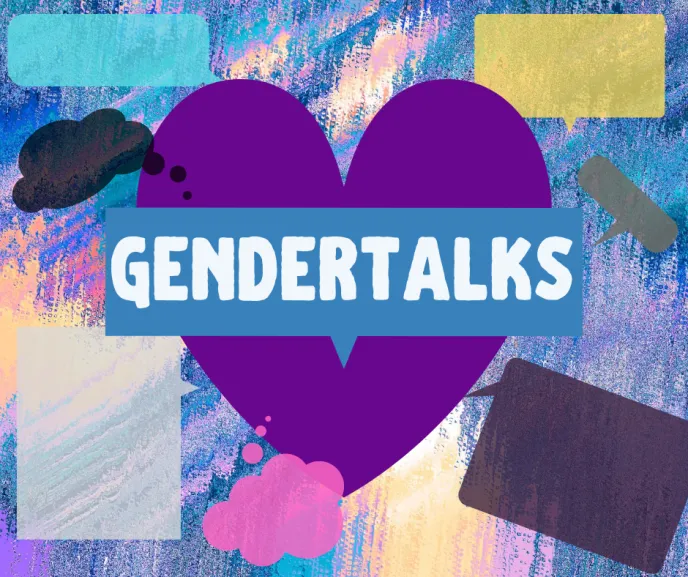Humanities Responders

Logo for GenderTalks, a documentary theater community project connecting trans, nonbinary, and gender nonconforming folks across the Midwest. Rising Fire Theatre will produce the play on September 22 and 23, which project leader Orion Risk wrote specifically for performance over Zoom. Image courtesy of Orion Risk.
How can the public humanities do the most good in a time of pandemic? At the University of Wisconsin, Humanities Responders was our answer to this starry-eyed question, our shot in the dark in the uncertainty of mid-March. Unlike the first responders who work at sites of public emergency, our Humanities Responders are students recognizing the invisible crises left off the front pages and collaborating with local leaders to build resilience for a murky future. To quickly build interest among students and partners, we reduced the typical barriers to involvement: doing away with application deadlines, accepting non-traditional applications, replying to submitted applications within a day or two, honoring lived experiences, and redirecting funding typically earmarked for our in-person events towards the needs of our Humanities Responder projects.
Our first crop of funded Humanities Responders addresses Wisconsin communities who are largely offline and imperiled by racism, health inequities, and environmental threats exacerbated by the pandemic. These students are using their skills in oral history, visual arts, marketing, radio production, photography, and creative writing to go beyond simply archiving this crisis. They are creating media campaigns with Menominee leaders whose lands are threatened by sulfide mining and cannot proceed with the usual in-person advocacy (Wolf River Action Committee). They are collaborating with Latinx grocery store owners across northern Wisconsin to tell the stories of rural farm workers, and provide them time-sensitive legal and health aid (Dustin Cohan with SWCAP). They are creating a theatrical production out of a series of conversations with trans and gender non-binary individuals in meat packing plant communities, current hot-beds for COVID-19 (GenderTalks with Rising Fire Theatre). They are empowering local refugees in Dane County with audio production skills and the opportunity to assert their identities and needs on local radio (Grace Simbulan & Johnny Bassett with Open Doors for Refugees). They are all paying leaders of color, partners, and themselves for their time, labor, and expertise.
While we cannot be certain of much under the pandemic, we are confident this initiative is providing students a frontline experience of social entrepreneurship and civic responsibility that will be critical to their professional lives in the back half of this dark year, and much beyond.
To learn more about our current Humanities Responders, visit here and feel free to contact me with questions (fai@wisc.edu).
Aaron Fai is the Assistant Director of Public Humanities at UW-Madison’s Center for the Humanities.
Learn how to contribute to the Humanities for All blog here.